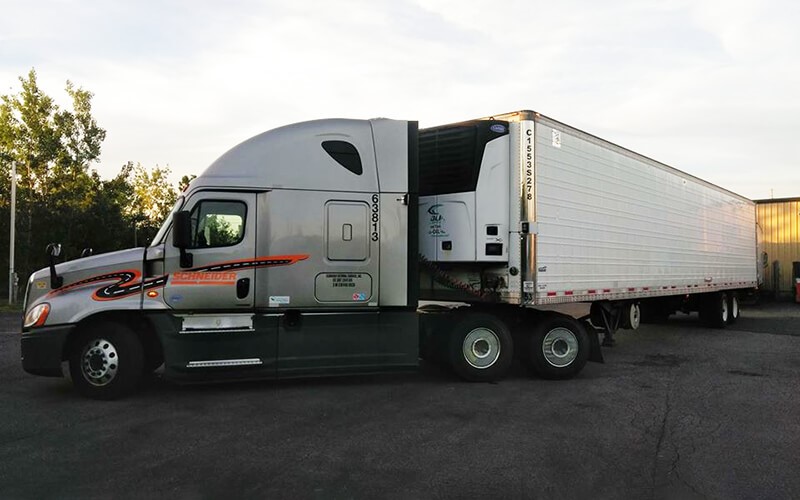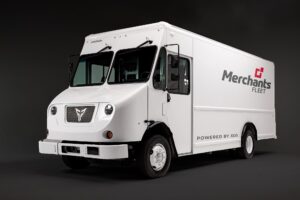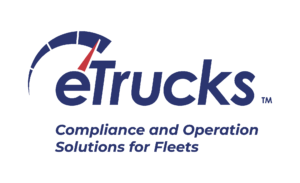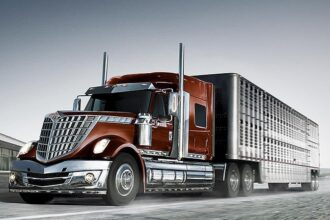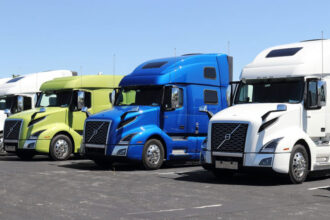Table of Contents
Our Verdict
Are you thinking about diving into the world of reefer trucks, huh? Well, grab your coat (and your wallet) because things are about to get chilly in this frosty business review. But get this: the reefer business isn’t for the faint of heart. It’s like a rollercoaster ride through the frozen tundra of entrepreneurship. But hey, who said making money was supposed to be easy, right?
Now, picture this: you’ve got a reefer truck packed to the brim with temperature-sensitive goods, hurtling down the highway in the dead of winter. Your cargo? Precious, perishable stuff that folks are counting on. It’s a high-stakes game. But when you hit the mark, the profits can be as sweet as a scoop of your favorite ice cream on a hot summer day. And that’s where the magic happens.
In the world of reefer trucks, you’re the lifeline for businesses that deal in freshness. You’re the hero who keeps strawberries red, ice cream frozen, and flowers blooming, even when it’s snowing outside. So, is reefer business good business? Well, if you’ve got the guts and the grit to handle the chill, it might just be your ticket to cold, hard cash.
Pros
- Cater to the growing demand for temperature-sensitive goods.
- Ensure the pristine condition of products in industries like food, pharmaceuticals, and flora.
- Transport a variety of goods, from frozen foods to medical supplies.
- Enjoy the freedom and flexibility of setting your schedule as an owner-operator.
- Keep your business in constant demand with consistent work opportunities.
- Have the potential for high profit margins, especially with time-sensitive cargo.
- Earn trust and loyalty from clients, becoming a vital link in the supply chain.
- Utilize advancing reefer technology for better temperature control and cargo safety.
- Expand your business by adding more trucks, diversifying cargo, and targeting new markets.
- Enter an evergreen industry, as long as fresh and frozen goods are needed.
Cons
- Invest a substantial upfront amount in refrigerated trucks and equipment.
- Incur potentially high maintenance and repair costs for reefer units.
- Face increased fuel expenses due to the weight and power requirements of refrigerated trucks.
- Manage limited cargo space in reefer trucks compared to standard trucks.
- Seek experienced drivers capable of handling reefer trucks and temperature-sensitive cargo.
- Handle potential cargo spoilage and financial losses resulting from temperature fluctuations or equipment failures.
- Navigate administrative complexity related to regulatory compliance, including temperature record-keeping.
- Adapt to business fluctuations caused by weather conditions, seasonal demand changes, and unexpected delays.
- Compete in a challenging market with established players dominating certain routes and markets.
- Plan and schedule deliveries meticulously to meet specific timeframes, potentially causing stress.
- Ensure hygiene and cleanliness in reefer trucks, which is crucial but adds operational challenges.
- Address the shorter lifespan of reefer trucks compared to standard trucks, requiring more frequent replacements.
- Meet emission standards when operating in environmentally regulated zones, incurring additional costs.
- Consider that the reefer business may not align with environmentally conscious consumer preferences.
- Handle inherent health and safety risks associated with working in cold environments and moving heavy cargo.
- Manage complex insurance requirements for reefer trucks and cargo, potentially leading to higher costs.
- Navigate intricate contracts and agreements with suppliers and clients, necessitating legal expertise.
- Prepare for potential financial losses and customer relationship strain resulting from supply chain disruptions.
- Face the physical and mental demands of the reefer business, impacting your work-life balance.
Who Reefer Business Is Best For
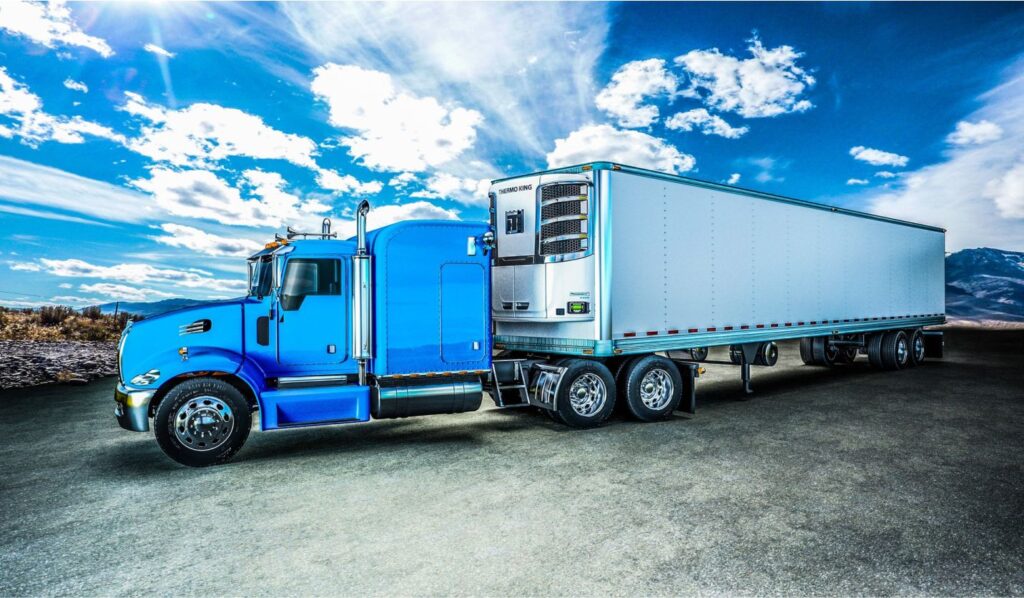
Consider Reefer Business if you:
- Have expertise in logistics
- Embrace technological advancements
- Seek diverse cargo options
- Value temperature control knowledge
- Appreciate regulatory compliance
- Accept seasonal fluctuations
- Invest in quality equipment
- Seek growth opportunities
- Manage cold storage
- Prioritize cargo safety
- Appreciate high standards
- Network with industry players
- Adapt to technological advancements
- Handle unexpected challenges well
- Understand market dynamics
- Invest in training your employees
>>>MORE: Do I Need Authority For Reefer?
Who Reefer Business Isn’t Right For
Find an alternative business to Reefer Business if you:
- Can’t handle fluctuating temperatures.
- Don’t want high upfront costs.
- Aren’t prepared for maintenance costs.
- Dislike regulatory complexity.
- Can’t handle cargo limitations.
- Aren’t comfortable with seasonal demand.
- Aren’t detail-oriented.
- Want a stress-free work environment.
- Dislike competition.
- Don’t want frequent truck replacements.
- Can’t manage health and safety risks.
- Hate complex insurance.
- Don’t want legal hassles.
- Aren’t prepared for supply chain disruptions.
- Don’t want to compromise work-life balance.
- Aren’t a fan of uncertainty.
What Reefer Business Offers

Offers Profit Potential
Gives you the opportunity to generate substantial profits, especially when catering to high-demand industries like food and pharmaceuticals.
Provides Versatility
Allows you to transport a wide range of goods, including perishable items, pharmaceuticals, flowers, and more, making it a versatile option.
Ensures Steady Demand
Has a steady demand for temperature-controlled transport, even in economic downturns, as certain products always need to be delivered in controlled environments.
Caters to a Diverse Client Base
Can serve various industries, from agriculture to healthcare, providing opportunities to diversify your clientele.
Secures Long-Term Contracts
Allows you to secure contracts with established clients, which can provide a stable income stream for your business.
Ensures Regulatory Compliance
Ensures compliance with health and safety regulations to build a positive reputation and earn client trust.
Integrates Tech Advances
Utilizes modern reefer units equipped with advanced technology for real-time cargo monitoring.
Offers Eco-Friendly Options
Consider eco-friendly reefer units to attract environmentally conscious clients.
Utilizes Seasonal Opportunities
Capitalizes on seasonal demand spikes, like holiday food deliveries or flower shipments.
Provides Growth Potential
Expands your business when you invest in a larger fleet or provide specialized services to meet unique client requirements.
>>>PRO TIPS: Reefer Business Ideas
Reefer Business Details
- Specialize in transporting temperature-sensitive goods like food, pharmaceuticals, and chemicals.
- Play a critical role in maintaining the integrity of products during transportation, ensuring they reach consumers in optimal condition.
- Utilize built-in temperature control systems to keep cargo within a specified temperature range, preserving product quality and safety.
- Cater to a wide range of industries, from agriculture to healthcare, making them versatile in cargo options.
- Adhere to strict regulations to ensure the safety and quality of transported goods.
- Employ specialized refrigerated trailers or containers, which can be expensive to purchase and maintain.
- Starting a reefer business requires a significant initial investment in refrigeration equipment and vehicles.
- Require regular maintenance to keep them in optimal working condition, adding ongoing costs.
- Operate in extreme temperatures, such as freezing cold or scorching heat, posing physical demands on drivers.
- Experience fluctuations in demand for reefer services, necessitating effective business planning.
- Rely on meticulous temperature monitoring, cargo handling, and record-keeping for success.
- Encounter complexities in ensuring reefer cargo and equipment due to the high value of goods being transported.
- Navigate various legal and regulatory requirements, including permits and licenses.
- Remain vulnerable to supply chain disruptions, such as fuel shortages or equipment breakdowns.
- Manage health and safety risks associated with handling temperature-sensitive cargo.
- Recognize and manage the higher emissions associated with reefer units.
- Address challenges related to late or non-payments from clients, necessitating effective invoicing and collection strategies.
- Manage all aspects of the business, from driving to administrative tasks, which can be stressful and demanding.
Where Reefer Business Stands Out
- Ensure cargo quality through precise temperature control.
- Cater to a spectrum of industries, from agriculture to pharmaceuticals.
- Utilize advanced temperature control systems for cargo integrity.
- Adhere rigorously to safety and quality regulations.
- Employ specialized refrigerated trailers or containers for transportation.
- Manage temperature-sensitive cargo with precision and care.
- Experience consistent demand for transporting essential goods.
- Specialize and become experts in handling specific types of cargo.
- Adopt eco-friendly practices to reduce environmental impact.
- Operate across diverse geographic regions, meeting global supply chain needs.
- Stay at the forefront of technology, employing advanced monitoring and tracking systems.
- Utilize data and analytics for efficient route planning and fuel optimization.
- Present investment opportunities due to their critical role in the supply chain.
- Prioritize health and safety practices for both cargo and personnel.
- Ensure products reach consumers in optimal condition.
- Exhibit operational resilience to navigate supply chain disruptions effectively.
Where Reefer Business Falls Short
- Operate your reefer business primarily for temperature-sensitive cargo, limiting the range of goods they can transport.
- Invest substantially upfront in specialized equipment and vehicles to start your reefer business.
- Maintain refrigeration equipment and vehicles regularly, resulting in additional expenses.
- Navigate seasonal fluctuations in demand carefully, necessitating planning in reefer business operations.
- Ensure temperature-sensitive cargo and equipment, involving complexity and high costs due to its value.
- Manage various legal and regulatory requirements, including permits and licenses, which can be challenging for your reefer business.
- Handle health and safety risks associated with temperature-sensitive cargo, necessitating proper management.
- Manage effective invoicing and collection strategies to handle late or non-payments from clients that can affect cash flow in reefer businesses.
- Align with environmentally conscious customers or regulations, as reefer units tend to have higher emissions.
- Address physical demands and stress on drivers due to operating in extreme temperatures.
- Tackle potential supply chain disruptions that reefer businesses are vulnerable to, which can impact operations.
- Handle all aspects of the business, from driving to administrative tasks, making it a stressful and demanding role in your reefer business management.
Alternatives to Reefer Business
Dry Van Trucking
If you want a more versatile trucking business, consider dry van trucking. These trailers are not temperature-controlled, so you can transport a wider range of goods.
Flatbed Trucking
Flatbed trucking is ideal if you’re looking for something different. It’s used for transporting oversized or oddly shaped cargo, like construction materials and machinery.
Expedited Freight
To satisfy businesses seeking faster deliveries and time-sensitive cargo, expedited freight might be the answer. It’s all about speed and efficiency.
Intermodal Transportation
Intermodal transportation involves using different modes of transport, such as trucks, trains, and ships, to move cargo. It can be a more eco-friendly and cost-effective option.
Freight Brokerage
If you’d rather facilitate freight transportation than own the trucks, consider becoming a freight broker. You connect shippers with carriers and earn a commission for each successful match.
Third-Party Logistics (3PL)
3PL companies handle various aspects of logistics, including warehousing, shipping, and inventory management. It’s a great option if you want to outsource logistics functions.
Non-Temperature-Sensitive Cargo
If you want to avoid the complexities of refrigerated cargo, focus on transporting non-temperature-sensitive goods like dry goods, electronics, or industrial equipment.
Specialized Hauling
Specialized hauling involves transporting unique or delicate cargo, such as art, medical equipment, or even animals. It requires specific expertise but can be profitable.
Passenger Transportation
If you’re open to a completely different field, consider passenger transportation, like running a shuttle service or charter bus business. It can be a steady income source.
E-commerce Delivery
Partner with online retailers to deliver packages to customers’ doorsteps. The growth of e-commerce offers opportunities for delivery services.
>>>GET SMARTER: Reefer Business Accessories You Need to Succeed
Customer Reviews
In Reefer Business, customer reviews paint a vivid and overwhelmingly positive picture. Companies like Reefer Express and ATC Truck Refrigeration have left customers seriously impressed with their reliable and punctual services. Customers often describe their experiences as “impeccable,” highlighting the importance of keeping cargo frosty and safe. R&H Repair shines as the efficient pit crew of the reefer world, ensuring rapid responses and effective repairs to get businesses back on the road swiftly. Trustpilot serves as the ultimate trust barometer, reflecting high ratings and customer satisfaction, making it evident that the Reefer Business knows how to keep both cargo and clients cool.
If you’re considering entering the reefer business or switching providers, these reviews provide essential insights. They showcase that in this industry, it’s not just about delivering on promises; it’s about going above and beyond to ensure cargo remains chilled and businesses continue to thrive. These customer sentiments emphasize that in the world of refrigerated transportation, satisfaction isn’t merely a goal; it’s a way of life.
Pro Tips
- Invest in top-notch refrigeration units.
- Prioritize maintenance.
- Understand your market.
- Ensure cargo safety.
- Maximize fuel efficiency.
- Master cold chain management.
- Prioritize insurance coverage.
- Stay compliant.
- Plan for downtime.
- Provide excellent customer service.
- Consider eco-friendly options.
- Implement tracking technology.
Recap
In this riveting world of temperature-controlled cargo, money isn’t just an occasional visitor—it’s a resident. Talk about an industry where, if you lay your cards right, you can stack up the bucks like a game of high-stakes poker.
Reefer Business is a venture that promises both frosty challenges and the tantalizing allure of making some serious cold, hard cash. If you’re up for a thrilling journey where you’ll become the guardian of temperature-sensitive goods, this might be the path for you. Imagine yourself transporting everything from fresh produce to pharmaceuticals, ensuring they stay icy-fresh while your profits stack up.
However, don’t underestimate the chilly hurdles that come with the reefer business. Equipment breakdowns, traffic navigation with a freezer on wheels, and meticulous record-keeping are all part of the package. Yet, if you’re the entrepreneur who can brave the cold, master logistics, and remain unflappable in crises, the rewards can be as chillingly satisfying as a scoop of your favorite ice cream.
Reefer Business isn’t just business; it’s a snowballing avalanche of profits. It’s where you can freeze your doubts and thaw out financial success. So, if you’re into making serious dough while keeping things cool, Reefer Business might just be your icy El Dorado. So, get ready for a frozen adventure—the Reefer Business is waiting to be conquered.


